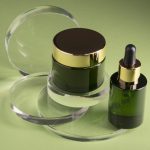Introduction to the Ingredient
The Skin’s Energy Boost or Just Caffeine’s Lesser Cousin?
Hey there, skincare enthusiasts! Let’s dive into the fascinating world of adenosine and its benefits in cosmetics and skincare products. Now, I know it sounds a bit scientific, but trust me, it’s all about giving your skin that extra boost it deserves!
Anti-aging Magic: First up, adenosine is like a superhero when it comes to fighting signs of aging. It works its magic by making your skin smoother and younger-looking. How? Well, studies have shown that using adenosine creams and serums can help reduce the appearance of wrinkles and fine lines. It’s like pressing the rewind button on your skin’s clock!
Healing Wonder: But wait, there’s more! Adenosine isn’t just about looking good; it’s also about healing your skin. When you apply products with adenosine, it helps your skin heal faster, especially those pesky wounds and cuts. Think of it as giving your skin a little extra support to bounce back quicker!
Soothing Sensation: Ahh, the soothing power of adenosine! It’s like a gentle hug for your skin. Adenosine has anti-inflammatory properties, which means it can calm down redness and irritation. So, if your skin is feeling a bit sensitive or irritated, adenosine is here to save the day!
Hair Hero: And guess what? Adenosine isn’t just for your skin; it’s for your hair too! Some studies have suggested that adenosine can help thicken hair and promote hair growth. It’s like giving your hair that extra boost of confidence!
Now, I know what you’re thinking – is adenosine safe? Well, good news! Experts have looked into it, and so far, it seems to be A-OK! The Cosmetic Ingredient Review Expert Panel has given it the thumbs up, saying it’s safe to use in skincare products. So, you can feel confident adding adenosine to your skincare routine!
See, adenosine may sound like a mouthful, but when it comes to skincare, it’s all about giving your skin the love and care it deserves. So go ahead, embrace the power of adenosine, and let your skin shine!
Adenosine is a promising ingredient in skincare that is gaining popularity for its multiple benefits. It is a water-soluble, odorless, crystalline powder derived from yeast. It is safe for all skin types and can be used in concentrations of up to 1% in skincare products.
How Does it Work?
Adenosine is a molecule present in all living organisms and plays a crucial role in many biochemical processes. In skincare formulations, it is derived from yeast and is known for its anti-aging, soothing, and healing effects. Adenosine works by stimulating the synthesis of collagen, a protein that contributes to skin firmness and elasticity. It binds to fibroblasts cell receptors, which are responsible for synthesizing collagen.
Key Benefits
Adenosine offers several benefits for the skin:
- Anti-aging: It improves fine lines and wrinkles by stimulating collagen synthesis.
- Soothing: It has anti-inflammatory properties and aids in reducing irritations.
- Healing: It encourages the skin to repair faster and strengthens the protective barrier.
Usage in Beauty Products
Adenosine is found in a wide range of beauty and skincare products, including serums, moisturizers, and eye creams. It is often used in combination with other ingredients, such as peptides, antioxidants, and hyaluronic acid, to enhance its effects on the skin.
Safety and Precautions
Adenosine is generally considered safe and well-tolerated for all skin types. However, some individuals may experience an allergic reaction to Adenosine, resulting in redness, itching, or rash. It is essential to be cautious when combining Adenosine with other active ingredients in your skincare routine.
Compatibility with Other Ingredients
Adenosine is compatible with most skincare ingredients. However, it is essential to be cautious when combining Adenosine with other active ingredients in your skincare routine.
Scientific and Research Findings
Research has shown that adenosine is effective at smoothing wrinkles, improving elasticity, and increasing dermal density. It has been found to be non-irritating and has no known adverse side effects.
Common Variants or Derivatives
Adenosine is present in three forms, also known as derivatives of adenosine: adenosine, adenosine monophosphate, and adenosine triphosphate.
Considerations When Using the Product
While Adenosine is generally considered safe and well-tolerated for all skin types, there are a few potential side effects and interactions to be aware of. If you’re concerned about any potential adenosine side effects, check the percentage of adenosine concentration.
Reference
For more detailed information, you can refer to the study conducted by the International Journal of Cosmetic Science that evaluated the anti-wrinkle efficacy of adenosine-containing products.
Conclusion
Adenosine is a promising ingredient in skincare with multiple benefits. It is safe for all skin types and offers anti-aging, soothing, and healing effects. However, as with any skincare product, it’s important to use it correctly and be aware of any potential side effects or interactions.
FAQs
- What is Adenosine?
- Adenosine is a molecule present in all living organisms and plays a crucial role in many biochemical processes. In skincare formulations, it is derived from yeast and is known for its anti-aging, soothing, and healing effects.
- How does Adenosine work in skincare?
- Adenosine works by stimulating the synthesis of collagen, a protein that contributes to skin firmness and elasticity.
- What are the key benefits of Adenosine in skincare?
- Adenosine offers several benefits for the skin, including anti-aging, soothing, and healing effects.
- Are there any side effects of using Adenosine in skincare?
- Adenosine is generally considered safe and well-tolerated for all skin types. However, some individuals may experience an allergic reaction to Adenosine, resulting in redness, itching, or rash.
- Where can I find Adenosine in skincare products?
- Adenosine is found in a wide range of beauty and skincare products, including serums, moisturizers, and eye creams.



